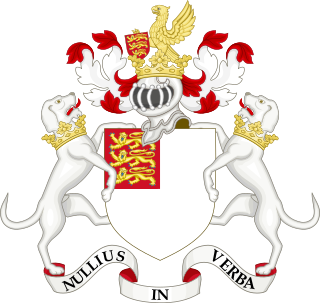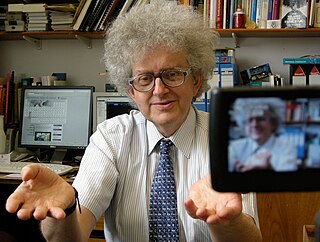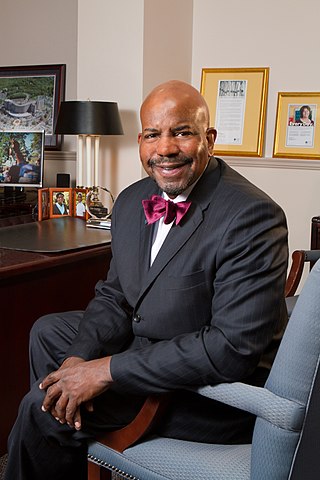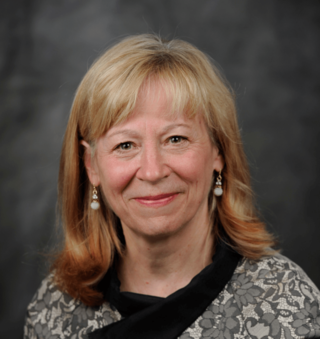Related Research Articles

The American Society for Microbiology (ASM), originally the Society of American Bacteriologists, is a professional organization for scientists who study viruses, bacteria, fungi, algae, and protozoa as well as other aspects of microbiology. It was founded in 1899. The Society publishes a variety of scientific journals, textbooks, and other educational materials related to microbiology and infectious diseases. ASM organizes annual meetings, as well as workshops and professional development opportunities for its members.

The Royal Society, formally The Royal Society of London for Improving Natural Knowledge, is a learned society and the United Kingdom's national academy of sciences. The society fulfils a number of roles: promoting science and its benefits, recognising excellence in science, supporting outstanding science, providing scientific advice for policy, education and public engagement and fostering international and global co-operation. Founded on 28 November 1660, it was granted a royal charter by King Charles II as The Royal Society and is the oldest continuously existing scientific academy in the world.

Sir Aaron Klug was a British biophysicist and chemist. He was a winner of the 1982 Nobel Prize in Chemistry for his development of crystallographic electron microscopy and his structural elucidation of biologically important nucleic acid-protein complexes.

Chintamani Nagesa Ramachandra Rao,, is an Indian chemist who has worked mainly in solid-state and structural chemistry. He has honorary doctorates from 84 universities from around the world and has authored around 1,800 research publications and 56 books. He is described as a scientist who had won all possible awards in his field except the Nobel Prize.

The African Academy of Sciences (AAS) is a non-aligned, non-political, not-for-profit, pan-African learned society formed in 1985.
The Academy of Social Sciences is a representative body for social sciences in the United Kingdom. The academy promotes social science through its sponsorship of the Campaign for Social Science, its links with Government on a variety of matters, and its own policy work in issuing public comment, responding to official consultations, and organising meetings and events about social science. It confers the title of Fellow upon nominated social scientists following a process of peer review. The academy comprises over 1000 fellows and 41 learned societies based in the UK and Europe.
Elizabeth Habte Wold is an Ethiopian artist known for her mixed-media work. She completed degrees in fine arts at the School of Fine Arts in Addis Ababa and Baltimore City Community College in Maryland, and an MFA at Howard University. She became interested in digital media through a certificate program in interactive multimedia and web design at George Washington University. She has worked since the mid-1990s as a multimedia designer, and lives in Addis Ababa.

Sir Martyn Poliakoff is a British chemist, working on fundamental chemistry, and on developing environmentally acceptable processes and materials. The core themes of his work are supercritical fluids, infrared spectroscopy and lasers. He is a research professor in chemistry at the University of Nottingham. As well as carrying out research at the University of Nottingham, he is a lecturer, teaching a number of modules including green chemistry.

Chen Zhu ForMemRS is a Chinese hematologist and molecular biologist who has served as president of the Red Cross Society of China since 2015.

Cato T. Laurencin FREng SLMH is an American engineer, physician, scientist, innovator and a University Professor of the University of Connecticut.
Sossina M. Haile is an American chemist, known for developing the first solid acid fuel cells. She is a professor of materials science and engineering at Northwestern University, Illinois, US.

Olufunmilayo I. Olopade born in the year 1957, is a Nigerian hematology oncologist, Associate Dean for Global Health and Walter L. Palmer, Distinguished Service Professor in Medicine and Human Genetics at the University of Chicago. She also serves as director of the University of Chicago Hospital's Cancer Risk Clinic.

Abdullahi Ahmed Irro, also known as Abdullahi Ahmad Yousef Irro, was a prominent Somali military professor and general. He helped establish the National Academy for Strategy.

Geraldine Lee Richmond is an American chemist and physical chemist who is serving as the Under Secretary of Energy for Science in the US Department of Energy. Richmond was confirmed to her DOE role by the United States Senate on November 5, 2021. Richmond is the Presidential Chair in Science and professor of chemistry at the University of Oregon (UO). She conducts fundamental research to understand the chemistry and physics of complex surfaces and interfaces. These understandings are most relevant to energy production, atmospheric chemistry and remediation of the environment. Throughout her career she has worked to increase the number and success of women scientists in the U.S. and in many developing countries in Africa, Asia and South America. Richmond has served as president of the American Association for the Advancement of Science, and she received the 2013 National Medal of Science.

This is a timeline of women in science, spanning from ancient history up to the 21st century. While the timeline primarily focuses on women involved with natural sciences such as astronomy, biology, chemistry and physics, it also includes women from the social sciences and the formal sciences, as well as notable science educators and medical scientists. The chronological events listed in the timeline relate to both scientific achievements and gender equality within the sciences.

Professor Richard James Gilbertson is a paediatric oncology clinician scientist and a Senior Group Leader at the Cancer Research UK Cambridge Institute, University of Cambridge. He is the Li Ka Shing Chair of Oncology, and Director of the CRUK Cambridge Major Centre and the Children's Brain Tumour Centre of Excellence.
Rediet Abebe is an Ethiopian computer scientist working in algorithms and artificial intelligence. She is an assistant professor of computer science at the University of California, Berkeley. Previously, she was a Junior Fellow at the Harvard Society of Fellows.
Mehret Mandefro is an Ethiopian–American film/television producer, writer, physician and anthropologist. She is the group leader of the Indaba Africa, a co-founder of Realness Institute and co-founder of Truth Aid Media and is a board member of advisors for the shared Harvest Fund. She is also a recipient of The Paul & Daisy Soros Fellowships for New Americans (2001) and in 2007 sat as one of the 41 distinguished New American panelists. In 2016, she was honoured by Carnegie Corporation of New York as one of America's Great Immigrants.
Masresha FeteneFAAS is an Ethiopian professor of Plant Ecophysiologist at the Department of Plant Biology and Biodiversity Management, Addis Ababa University.
Michael Edward MeadowsFAAS FRSSAf is a British-South African Emeritus Professor of physical geography at the Department of Environmental and Geographical Sciences, University of Cape Town.
References
- 1 2 3 4 5 Nordling, Linda (2010-04-09). "Ethiopia launches first science academy". Nature. doi: 10.1038/news.2010.173 . ISSN 1476-4687.
- ↑ "New national academy of sciences for Ethiopia". Royal Society . 2010-04-09. Retrieved 2022-11-10.
- ↑ Morell, Virginia (2010-04-09). "Ethiopia's First Science Academy". Science . doi:10.1126/article.30609.
- 1 2 "Founders of Ethiopian Academy of Sciences at Tadias Magazine". Tadias Magazine. 2014-07-08. Retrieved 2022-11-10.
- ↑ Diab, Roseanne Denise; McGrath, Peter (2022-02-11). "Science academies, disciplinary groups lag behind on gender equality". The Herald. Retrieved 2022-11-10.
- ↑ Administrator, NASAC (2018-11-30). "Member Academies" . Retrieved 2022-11-10.
- ↑ Atabong, Amindeh Blaise (2019-12-13). "Africa's medical scientists are struggling to get funding to back their research". Quartz. Retrieved 2022-11-10.